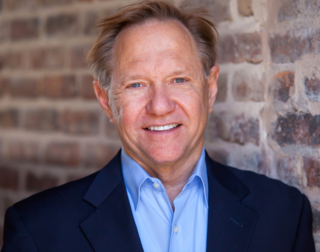A Quote by Robert K. Greenleaf
Moral authority is another way to define servant leadership because it represents a reciprocal choice between leader and follower. If the leader is principle centered, he or she will develop moral authority. If the follower is principle centered, he or she will follow the leader. In this sense, both leaders and followers are followers. Why? They follow truth. They follow natural law. They follow principles. They follow a common, agreed-upon vision. They share values. They grow to trust one another.
Quote Topics
Agreed
Another
Another Way
Authority
Because
Between
Both
Centered
Choice
Common
Define
Develop
Follow
Follower
Followers
Grow
He Or She
Law
Leader
Leaders
Leadership
Moral
Moral Authority
Natural
Natural Law
Principle
Principles
Reciprocal
Represents
Sense
Servant
Servant Leader
Servant Leadership
Share
She
Trust
Truth
Values
Vision
Way
Why
Will
Related Quotes
People buy into the leader before they buy into the vision. Many people who approach the area of vision in leadership have it backwards. They believe that if the cause is good enough, people will automatically buy in and follow. But that's not how leadership works. People don't follow worthy causes; they follow worthy leaders with a cause they can believe in. They buy into the leader first.
Often, in a given project team or network, one sees leadership roles shifting among various members at various times. Attempts to fit these into traditional views of "leader" and "follower" don't quite work. It's more like Twitter: the "leader" has "followers" - but the "followers" are empowered to alter the relationship unilaterally, and the "leader" must continually earn the consent of the "followers."
The position does not make you a leader. The title, the promotion, the fancy corner office do not make you a leader. No, it is relationships with people that are the foundation, the very heart of leadership. Have you ever worked for someone you didn't like? It's difficult, isn't it? On the other hand, the leader you will follow anywhere and everywhere is one you know cares about you, and values you. This person has your best interests at heart. It is the leader who comes alongside to help you improve and grow.
Trust is perhaps the most critical single building block underlying effectiveness. Without trust leaders do not have followers. Without trust, leaders are impotent despite great rhetoric or splendid ideas. Trust rests on the belief among followers that the leader is transparent: What you see is what there is. Trust means followers believe there is no duplicity; no manipulation just to satisfy the leader's ego. Very simply: The effective leader is transparent; that's why that person is trusted.
To be an effective leader, you must be trustworthy. If people don’t trust you, they won’t follow you. And if they won’t follow you, your organization won’t meet its goals. Sandy Allgeier explains that personal credibility comes down to a simple truth: It’s not about the type of person you are; it’s about the types of things you do. If you want to be a great leader, read The Personal Credibility Factor.
Jesus offered a single incentive to follow himto summarize his selling point: 'Follow me, and you might be happy-or you might not. Follow me, and you might be empowered-or you might not. Follow me, and you might have more friends-or you might not. Follow me, and you might have the answers-or you might not. Follow me, and you might be better off-or you might not. If you follow me, you may be worse off in every way you use to measure life. Follow me nevertheless. Because I have an offer that is worth giving up everything you have: you will learn to love well.'
Leadership is a choice. It's not a rank, it's a choice. I know many people who are at the top of their organization who have authority. We have to do what they say because they have authority over us. But they're not leaders. We wouldn't follow them. They may be at the top of the company but they're not leaders.

































